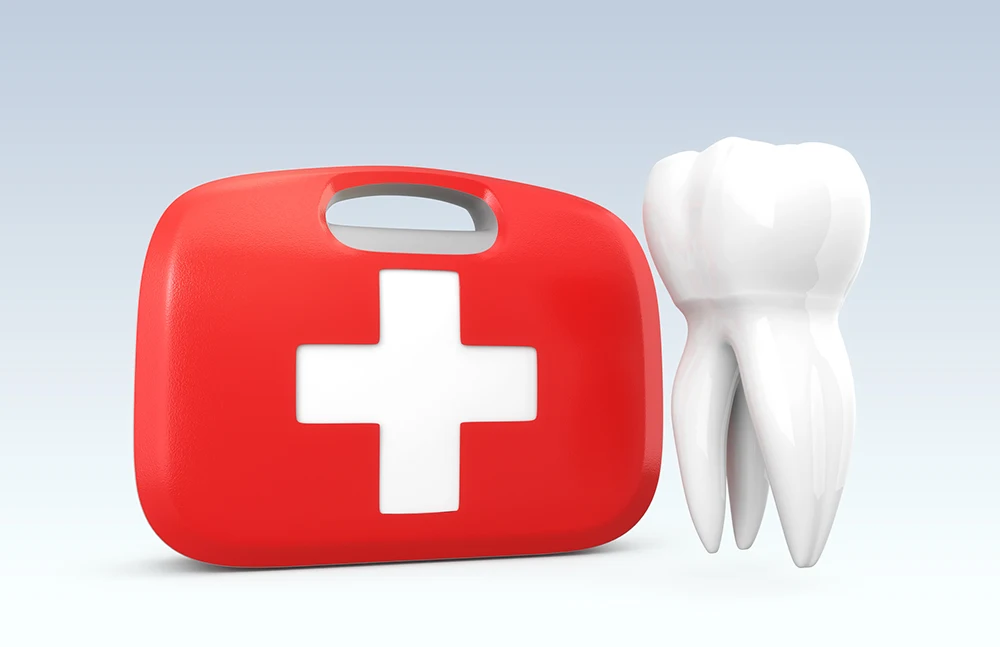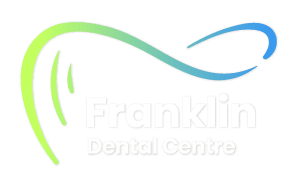While dental emergencies can happen, there are ways to prevent them. Some dental emergencies, such as tooth decay and gum disease, build over time while others, like a knocked-out or chipped tooth, happens suddenly. In any case, dental emergencies should never be ignored. Urgent care can help avoid irreparable damage.
Avoiding some of the risks and knowing what to do during a dental emergency can save you a great deal of pain, time, and money in the long run. Here are some of the most common dental emergencies and what you can do to prevent them.
1. Knocked-Out Tooth
A knocked-out tooth typically happens during a sports injury or other type of accident. If this happens, pick the tooth up by the crown (the chewing surface), being careful not to touch the root. You may be able to reinsert the tooth back into the socket, but if you can’t, place the tooth in a cup of milk and call an emergency dentist right away. The sooner you can get to a dental clinic in Fort McMurray, the better your chances of having the tooth restored.
Prevention: The best way to prevent a knocked-out tooth is by using a mouthguard while playing sports, wearing your seatbelt in the car, and being very mindful while participating in any physical activity.
Abscess
An abscess is a collection of pus caused by a bacterial infection and is a serious dental emergency. If left untreated, the infection can spread to the surrounding gum tissue and into the bloodstream. If you have a painful, swollen spot on your gums, see your dentist as soon as possible.
Prevention: Brushing and flossing every day and seeing your dentist regularly for dental cleanings can help prevent infections. Your dentist will be able to identify issues early on and offer the right treatment before they become a bigger, painful problem.
2. Filling or Crown Falls Out
A filling or crown can fall out for several reasons, including chewing on hard foods or objects or underlying tooth decay. If your crown falls out, be sure to take it with you to the dentist.
Prevention: Be mindful about what and how you eat and chew, especially in the area where there’s a filling or crown. Avoid chewing on hard foods and objects, and give your teeth some time to recover after a filling or crown treatment before you eat.
3. Chipped or Cracked Tooth
Much like a knocked-out tooth, some of the most common causes of a chipped or cracked tooth are from a sports-related injury or accident. Inspect the chip or crack. If there’s a crack going up towards the gum line, it’s important to get emergency dental care immediately.
Prevention: Although human teeth are strong, you’d be surprised how easy it is to crack or chip a tooth. Avoid biting down on hard candy or chewing on hard objects. Again, when playing sports, always wear a mouthguard.
Sudden Toothache
A toothache that comes suddenly and painfully is never a good sign and indicates a dental emergency. Apply a cold compress to the outside of your cheek to relieve the pain while you’re heading to your dentist. It can be tempting to take pain relief medication, but we recommend avoiding painkillers. Any contact with the affected gums can irritate the tissue.
Prevention: Some of the most common causes for toothache is tooth decay, gum disease, or bacterial infection. While the toothache may have come suddenly, the issue could have been building up over time. This highlights the importance of seeing your dentist regularly and keeping up with a daily oral hygiene routine to prevent this problem. Your dentist can determine early signs of decay or gum disease before it evolves into a sudden and painful toothache.
Bleeding and Pain After a Tooth Extraction
While some pain and bleeding are normal after a tooth extraction, you’ll need to inform your dentist right away if it persists more than an hour later. Bleeding that won’t stop, or excessive pain can be caused by an underlying infection, a broken blood vessel, or injury to the bone. In the meantime, bite down on a thick piece of gauze over the extraction site to apply pressure and control the bleeding.
Prevention: Avoid eating, smoking, sucking, or rinsing right after a tooth extraction. This issue may not be entirely preventable as it might arise due to how the tooth was extracted. The good news is that this dental emergency is rare, and tooth extractions are safe and done properly.
Franklin Dental Centre is here to help treat your dental problems with our dentist emergency service. Contact us to book an appointment.
Our patient forms are also available online so that you can save time and fill them out before your appointment.





